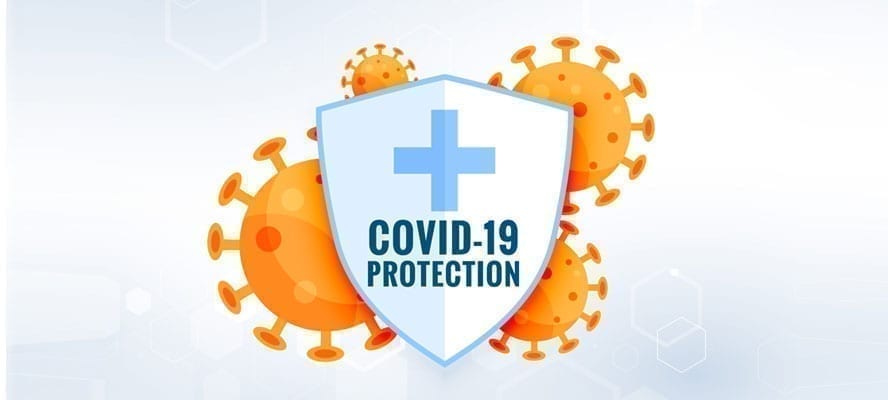Dr Jacob John, clinical virologist, Dr Anand Bhan, bioethics and policy expert and Dr David Heymann, infectious diseases epidemiologist share their vast experience, and suggestions on the scientific, policy and ethical perspectives of the COVID-19 vaccine, with infectious diseases specialist Dr Abdul Ghafur in a recent CME titled COVID-19 vaccines: Past, Present and the Future. Excerpts from the interaction
Dr Abdul Ghafur: Can booster vaccines help to overcome the variants of concern?
Dr Jacob John: The use of a vaccine with a new variant antigen as a booster (hetero-booster) can broaden the immune response and help overcome the concern on vaccine escape to a great extent.
Rich countries have utilised more than 80 per cent of the vaccine doses. Only less than 0.1 per cent is given to poor countries. How can we tackle this inequitable distribution of vaccine?
Dr Anand Bhan: Anyone at risk, everyone at risk! Any country that believes by vaccinating its own people can escape from viruses is wrong. There is no effective international mechanism to ensure equitable distribution. India is lucky in the vaccine and PPE side. We are helping other countries as well. More and more middle-income countries must do more R&D and not just manufacturing.
We need more South-to-South cooperation.
We should balance the domestic use of the vaccine and export.
We need more Government support to have high-quality research, high-quality regulatory support and linkage with academia and industry.
We should ensure price regulation, equitable distribution and reduction of the urban-rural discrepancy.
Dr David Heymann: COVID-19 is now endemic. We need to live with this virus. As the virus can also cause endemicity among animals (e.g., minks), eradicating the virus could be challenging. High vaccination coverage could be one of the options in our attempt to control the virus.
Eradication of smallpox and polio are examples of the success of equitable distribution of the vaccines. WHO COVAX is an attempt to ensure equitable distribution of the COVID-19 vaccines. Developing countries should develop their own vaccines. India is yet to create COVID-19 vaccines using new technology.
Dr Jacob John: Covaxin is a killed vaccine, a technology developed in the early 20th century. We haven’t invested in developing vaccines utilising new technologies.
Dr Anand Bhan: Development of rotavirus vaccine is an appreciable work our country has done. We need more investment in R&D. We need institutions of excellence that concentrates on vaccinology. DBT and ICMR are the ideal agencies to initiate the process.
Dr Abdul Ghafur: What is your opinion on the waiver of IP rights on COVID-19 vaccines?
Dr David Heymann: There are no successful alternate mechanisms to replace IP rights to create ingenuity in the private sector. The private sector is developing most vaccines. Government investment in early stimulus funds will help the public to own the IP rights. Compulsory licensing could be used as a way to bypass IP rights.
Dr Jacob John: Intellectual property rights are a far better investment than agriculture. India hasn’t understood this. We are more of improvisers and imitators. Improvisation and imitation cannot become an innovation.
Dr Anand Bhan: Waiver on IP rights won’t be very useful without technology transfer.
Dr Abdul Ghafur: What is the reason behind the large second wave in India?
Dr Jacob John: There are three primary reasons—first, the inevitable after wave of the first wave. Secondly, variants of concern and the third- public and the politicians letting the guard down.
The second wave is spreading three times faster. The doubling time of the second wave is ten days; the first wave was one month.
The second wave will peak in April. In June, we will return back to the endemic phase. THE SECOND WAVE will be SHORT and SHARP.
Dr Abdul Ghafur: What can we do to correct the scenario of inadequate sequencing of the virus?
Dr Jacob John: This is a systemic problem in our country. Unless we correct the scenario through innovative approaches, we cannot correct such deficiencies. We don’t have a proper public health department in our country.
Dr David Heymann: the UK followed a strategy of a combination of public and private funding to carry out large-scale sequencing.
Dr Abdul Ghafur: Why can’t our country produce vaccines in public sector firms?
Dr Jacob John: To succeed, we should create the right atmosphere for intellectual curiosity pursuit in Government institutions. We need to change the mindset to make a change.
Dr Anand Bhan: There was systemic neglect of our vaccine-producing units. The office of the Principal scientific adviser can take a lead role to reverse the situation.
Dr David Heymann: Government should encourage biotech start-ups by reducing bureaucracy.
Dr Abdul Ghafur: After a year of the pandemic, has the scientific world become wiser?
Dr David Heymann: We have developed new tools such as vaccines, but the problem is with the world’s governments. We need stronger health promotional activity and more resilient health systems.
Dr Anand Bhan: The pandemic has taught us humility!
(This is an abstract of an online CME interaction conducted on April 9, moderated by Dr Abdul Ghafur with Dr Jacob John, Dr Anand Bhan and Dr David Heymann. This is the 10th in the series of webinars conducted by the Global Coalition for COVID-19 Medical Care (GCCMC), a Wipro enabled platform, which brings together medical professionals to share knowledge and best practices in COVID-19 medical care to enable better clinical outcomes, improve hospital efficiency and coalesce home and hospital care. The full interview can be accessed at : https://www.youtube.com/watch?v=LXZuXn8Fsfo)



